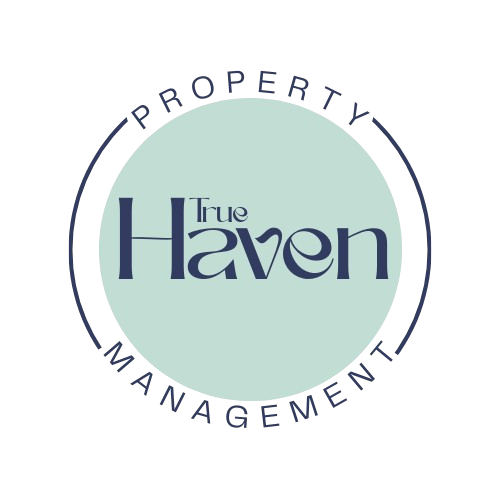Legal Compliance and the Risks of Self-Managing a Rental Property in California
Provided by True Haven Property Management
Disclaimer: The information contained in this article is provided for general informational purposes only and should not be construed as legal advice. True Haven Property Management is not a law firm and does not provide legal representation or legal counsel. We strongly recommend that all landlords and property owners consult with qualified legal professionals regarding compliance with California landlord-tenant laws and regulations, particularly as they relate to their specific properties and circumstances.
Thinking About Self-Managing Your Rental Property?
Before you decide to manage your own rental, it’s important to understand the legal, financial, and time-consuming risks that come with being a landlord in California.
While self-management may seem like a cost-saving option, the reality is that even small mistakes can result in substantial legal liability, financial penalties, and long-term stress. Here’s what every rental property owner should know.
Key Laws You Must Follow (and the Cost of Getting It Wrong)
Security Deposit Laws (Civil Code § 1950.5)
- Return deadline:
21 days
after move-out, with
itemized deductions
if over $125.
- As of
July 1, 2024 (AB 12): Most landlords may only collect
one month’s rent
as a deposit.
- As of
2025 (AB 2801): Landlords must
photograph units before and after tenancy
to justify any deductions.
Violation Consequences:
- Tenant claims for
3x the withheld amount
- Loss of all deductions if not properly documented
- Court orders to pay
legal fees and damages
Just Cause Evictions (AB 1482)
- Applies to most properties
15+ years old
- After 12 months of tenancy, you must have a
valid legal reason
to terminate tenancy.
- Certain reasons (like owner move-in) now require
specific disclosures and timelines
(see SB 567).
Violation Consequences:
- Invalid eviction notice = tenant can remain in place
- Exposure to
retaliation lawsuits and financial penalties
Fair Housing Compliance (FEHA + FHA)
- Landlords may not discriminate based on
race, religion, sex, national origin, disability, familial status, and more.
- Includes protections for
source of income,
gender identity,
sexual orientation, and
age.
Violation Consequences:
- Civil penalties up to
$10,000 per offense
- Additional
punitive and emotional distress damages
- Complaints investigated by
HUD or California DFEH
Tenant Screening Restrictions
- Criminal history
must be evaluated individually—blanket denials may violate fair housing law.
- You may not deny based solely on
arrests or expunged convictions.
Violation Consequences:
- Discrimination claims and fair housing investigations
- Inability to defend lease denials
Required Disclosures (various codes)
You must provide disclosures for:
- Mold, bedbugs, lead-based paint, flood zones, pest control, utility billing, and surveillance cameras
- Bedbug disclosure (Civil Code §1954.603) is
required for all properties
- Pest control (B&P §8538) notices must be given before or after treatment
Violation Consequences:
- Tenant can
break lease without penalty
- Lawsuits for nondisclosure or personal injury
- Enforcement by local housing authorities
Utility Billing (Civil Code §1940.9)
- If you bill tenants for
shared or sub metered utilities, you must
disclose the method and formula
in writing.
- Applies to
water, gas, and electric service
Smoking Disclosure (Civil Code §1947.5)
- You must state in writing whether smoking (including cannabis) is allowed or prohibited on the property.
EV Charging Stations (Civil Code §1947.6)
- In multifamily properties with assigned parking, tenants have the right to install
EV charging stations
at their cost—with reasonable rules.
Lease Language Requirements (Civil Code §1632)
- If the lease is
negotiated
in Spanish, Chinese, Tagalog, Vietnamese, or Korean, tenants are entitled to a
translated copy
of the lease.
Habitability Standards (Civil Code §1941)
You must ensure the property is:
- Safe, clean, and livable
- Free of
leaks, infestations, mold, and code violations
- Equipped with
working smoke/CO detectors and locks
Violation Consequences:
- Rent withholding or
repair-and-deduct
- Habitability lawsuits
- Local
code enforcement actions
Entry Restrictions (Civil Code §1954)
- You must give
24-hour written notice
before entering (except in emergencies).
- Excessive or inappropriate entry may be considered
harassment.
Lesser-Known or Easily Missed Laws
- AB 721 (Occupancy Restrictions)
– You may not enforce occupancy limits that conflict with fair housing laws, even if CC&Rs mention “single family only.”
- AB 2724 (Rent Payment Reporting)—If you own 15+ units, you must offer tenants the ability to report on-time payments to credit bureaus.
- City-Specific Rules (Sacramento, Davis, etc.) – Many cities require rental unit registration, special disclosures, or restrictions on evictions and rent increases beyond AB 1482.
Self-Management vs. Professional Management: Comparison Checklist
| Task | Self-Managing | True Haven PM |
|---|---|---|
| Lease & Legal Compliance | ❌ Risky | ✅ Fully Covered |
| Tenant Screening | ⚠️ Limited/Noncompliant | ✅ Fair Housing Compliant |
| Emergency Response | ❌ Owner-dependent | ✅ 24/7 Coverage |
| Security Deposit Handling | ⚠️ Easy to Misstep | ✅ Documented & Compliant |
| Local Ordinance Awareness | ❌ Often Overlooked | ✅ Continuously Monitored |
| Legal Notices & Evictions | ❌ High Risk | ✅ Legally Sound & Enforced |
True Haven Can Help
We combine local knowledge, modern technology, and deep industry experience to make compliance easy and ownership profitable. Whether you’re managing one home or a growing portfolio, we help protect your time, your asset, and your peace of mind.
Ready to protect your investment the smart way?
(916) 410-5201
truehavenpm@gmail.com
Serving Davis, Woodland, Winters, and surrounding areas in Yolo, Solano, and Sacramento Counties



